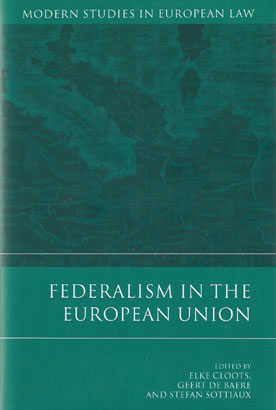
This edited volume aims to reveal the Janus-faced character of federalism in the European Union. Federalism appears in two main forms in the EU. On the one hand, numerous formerly unitary Member States have embarked on a path towards a (quasi-)federal governance structure.
On the other hand, the EU itself is sometimes qualified as a federal system. Significantly, the concept of federalism has a very different, even opposite, connotation in both contexts. When associated with Member State reform, federalism is regarded as a technique for accommodating autonomy claims of sub-state nations.
By contrast, when federalism is used as a label for the EU itself, it is conceived as a far-reaching way of integrating the nations of Europe. This dual appearance of federalism in the EU context is central to the structure of the book.
The focus of a first collection of essays is on domestic federalisation processes, more particularly on the impact of these processes on EU law and vice versa. In a second set of contributions, the attention shifts to the question as to whether the EU itself can be described as a federal system, and whether it can learn from existing federations.